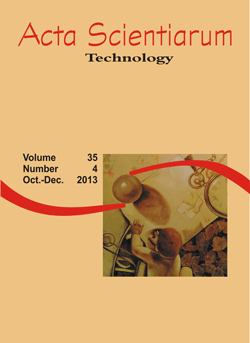<b>Designing an intelligent system to predict drill wear by using of motor current and fuzzy logic method</b> - doi: 10.4025/actascitechnol.v35i4.15647
DOI:
https://doi.org/10.4025/actascitechnol.v35i4.15647Palavras-chave:
tool condition monitoring, current signal, machine tool drives, thrust and cutting forces, drill wea, fuzzy logicResumo
In automation flexible manufacturing systems, tool wear detection during the cutting process is one of the most important considerations. This study presents an intelligent system for online tool condition monitoring in drilling process. In this paper, analytical and empirical models have been used to predict the thrust and cutting forces on the lip and chisel edges of a new drill. Also an empirical model is used to estimate tool wear rate and force values on the edges of the worn drill .By using the block diagram of machine tool drives, the changes in the feed and spindle motor currents are simulated, as wear rate increases. To predict tool wear rate, fuzzy logic capabilities have been used to develop an intelligent system. The simulation results presented with MATLAB software show the effectiveness of proposed system for on-line drill wear monitoring. This is confirmed by comparing the measured and estimated values with each other in which the value of R2 was obtained 0.9367 in the regression graph.
Â
Downloads
Downloads
Arquivos adicionais
Publicado
Como Citar
Edição
Seção
Licença
DECLARAÇíO DE ORIGINALIDADE E DIREITOS AUTORAIS
Declaro que o presente artigo é original, não tendo sido submetido í publicação em qualquer outro periódico nacional ou internacional, quer seja em parte ou em sua totalidade.
Os direitos autorais pertencem exclusivamente aos autores. Os direitos de licenciamento utilizados pelo periódico é a licença Creative Commons Attribution 4.0 (CC BY 4.0): são permitidos o compartilhamento (cópia e distribuição do material em qualqer meio ou formato) e adaptação (remix, transformação e criação de material a partir do conteúdo assim licenciado para quaisquer fins, inclusive comerciais.
Recomenda-se a leitura desse link para maiores informações sobre o tema: fornecimento de créditos e referências de forma correta, entre outros detalhes cruciais para uso adequado do material licenciado.



















